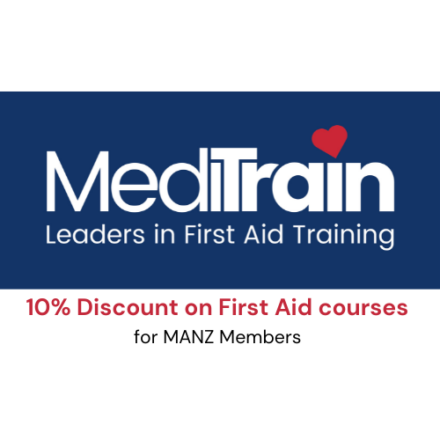Montessori Adults 3-6
What is the role of adults in the Montessori 3-6 learning community?
What qualifications do Montessori teachers have?
Essential Element
Montessori teachers need specialist Montessori qualifications for their age group, in addition to appropriate NZ early childhood teaching qualifications.
What this results in …
There is a diversity of Montessori qualifications in New Zealand, and Montessori centres decide individually which Montessori qualifications they will accept. Montessori qualifications can be achieved through distance learning, face-to-face diplomas, and as part of a teaching degree. There are NZ-based courses and many overseas courses.
MANZ acknowledges that Montessori teacher education programmes or training courses can be hard to access throughout New Zealand but recommend Montessori courses that provide face-to-face instruction, especially for the Montessori curriculum. Montessori teachers will be better prepared when the face-to-face component of the course increases.
MANZ recommends that the number of hours of face-to-face instruction by a Montessori lecturer qualified for the age-level focusing on Montessori curriculum and philosophy be a minimum of 160 hours moving to a full-time face-to-face course over nine months or more.
MANZ recommends that the Montessori course should include a number of supervised practice hours by a suitably (as above) trained and qualified lecturer of at least 80 hours for Montessori early childhood and that the qualification should include a minimum of 75 hours of classroom-based practicum.
Questions you could ask the Montessori centre staff
What qualifications do the teachers hold?
How many Montessori-trained staff are employed in the centre or classroom?
What Montessori training and experience do they have?
What other qualifications does the staff have?
Questions you could ask yourself while you observe the class
Does the teacher speak knowledgeably and confidently about Montessori philosophy and practice and can the teacher answer my questions clearly?
Is the teacher implementing Montessori in a way that is consistent with these guidelines?
How many adults should be in a Montessori early childhood classroom?
Essential Element
The Montessori learning community reaches its full potential when the number of adults is kept to the minimum since the real work of learning belongs to the child.
What this results in …
There is a minimum of adults present in the Montessori early childhood classroom (in New Zealand, there is a state requirement for one adult per 10 early childhood children over two years of age). Children develop the ability to concentrate and to become absorbed in their chosen activity or work when interruptions by adults or whole group times are kept to a minimum. Parent involvement will be welcomed for specified times and community activities, but the Montessori classroom focuses on the children becoming independent, which is only possible when adults are scared!
Questions you could ask the Montessori centre staff
What is the centre’s teacher-child ratio?
What do you need me to do to respect the children’s learning space?
How does your adult: child ratio encourage/foster independence?
Questions you could ask yourself while you observe the class
How many adults are in the classroom? What are they doing?
What can I see the Montessori teachers doing to protect the children’s concentration?
How do Montessori teachers develop respectful communities of children?
Essential Element
The Montessori educator deliberately models the behaviours and attitudes that she wishes the children to learn.
What this results in …
When you visit a Montessori class – it should be hard to see or hear the teachers. Look for adults who are engaged with children, do not intrude on children, and lower themselves to the child’s level to communicate and talk in a quiet speaking voice. Teachers give frequent ‘grace and courtesy’ lessons to children – gently modelling and showing what behaviour is desirable.
Questions you could ask the Montessori centre staff
What grace and courtesy lessons do you give, and what is the purpose of these lessons?
How do you help children to understand the behaviour that is acceptable in the classroom?
How do you manage extreme behaviour events from the children?
Questions you could ask yourself while you observe the class
Are the teachers very obvious in the classroom – or are they calm, quiet and engaged respectfully with the children one on one or in small groups?
Can I see teachers who show that they are enjoying the children?
Is the relationship between the teachers and children warm and interactive?
Why do Montessori teachers spend so much time watching the children?
Essential Element
The Montessori teacher is a trained observer of children. Teachers use these careful observations and their knowledge of the whole child to guide the child’s learning.
What this results in …
For the approach to be truly child-centred and child-initiated, teachers are constantly observing what the children’s interests, strengths and dispositions are. Montessori teachers are hard to spot in a classroom – they will be quietly working with 1-2 children, presenting new lessons or quietly observing.
Questions you could ask the Montessori centre staff
When you observe my child, what kinds of things are you looking for?
How does this support your planning for my child?
Questions you could ask yourself while you observe the class
Do the teachers take time to stand back and observe, or are they constantly engaged with children?
What teachers will be in the class with my child each day?
Essential Element
The child needs to experience the same Montessori teachers in the classroom every day.
What this results in …
A safe, caring community is built between familiar adults and children. Ideally, the lead teacher needs to be the same person every day. Ideally, the other teachers in the class will be the same from day to day, although this may not be possible when a staff member is training or on professional development
Questions you could ask the Montessori centre staff
Who are the teachers my child will interact with each day?
How will I know if my child’s teacher is going to be absent?
What staff turnover does the centre have?
Questions you could ask yourself while you observe the class
Do the children seem to be familiar and confident with all the adults in the classroom?
How do Montessori teachers keep up to date?
Essential Element
Montessori teachers need professional development to enable them to be reflective practitioners and lifelong learners.
What this results in …
MANZ suggests teachers should attend 10 to12 hours of Montessori-focused professional development each year, in addition to other teaching professional development.
Questions you could ask the Montessori centre staff
How do you stay current with what is happening in Montessori and general education in New Zealand and the wider world?
What is the role of parents in Montessori centres?
Essential Element
Montessori early childhood centres – staff, administrators and owners – work in partnership with parents.
What this results in …
Montessori centres foster a dialogue with parents to promote understanding of Montessori philosophy and values. There is an orientation process for both the parent and child in the Montessori learning environment. There are opportunities for parents to be involved in the Montessori community. There are opportunities for parents to learn about Montessori philosophy and practice. There are Montessori books, magazines and resources available to borrow. Regular dialogue with staff and written feedback provide parents with information about their child’s learning and experiences. Montessori centres offer suggestions about what you can do at home to support the work that happens at Montessori.
Questions you could ask the Montessori centre staff
How can I be involved with my children’s learning in the Montessori environment?
What support do teachers need?
What kinds of parent information evenings are offered and how will I know when these are being run?
Are there any books and resources I can borrow that will help me understand more about Montessori?
What kind of parent support networks operate in the centre and how will I get to know other parents?
What other opportunities are there for my family to be involved in the Montessori centre?
Can I talk to other parents about their involvement in the centre?
Questions you could ask yourself while you observe the class
Look at the noticeboards in the centre – what information is there for parents?
What parent community activities are promoted?
What is the Vision for Montessori at the centre?
Essential Element
The Montessori centre has a clear vision for how it delivers Montessori education.
What this results in …
The centre provides written information about its philosophy and vision for its students and ongoing growth. The centre’s operations manual, policies and procedures are available to parents at all times.
Questions you could ask the Montessori centre staff
How can I access the centre’s Operation Manual and Education Review Office report?
How does the school promote Montessori to the wider community?
Questions You Could Ask Yourself while you observe
Does the vision of the centre seem to be in action in the classroom?






